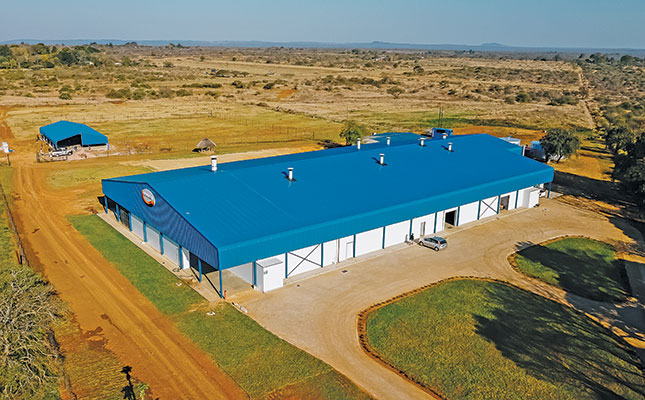Young Entrepreneur Transforms Poultry Business in Limpopo
At just 28 years old, Clive Tigere has built a thriving poultry business in his hometown of Louis Trichardt, Limpopo, proving that success doesn’t always require leaving home to “go big.”
Tigere, alongside his mother, Dr. Caroline Tigere, started their broiler operation in 2011 while he was still in high school. Over time, they expanded their business, facing and overcoming numerous challenges to establish KC Hatchery—one of the region’s key suppliers of day-old chicks.
From Small Beginnings to a Thriving Business
What started as a small broiler farm quickly gained momentum. By the time Tigere finished high school, he and his mother were selling 1,000 live birds daily, generating a turnover of R40,000 per day. However, despite his growing success, his mother insisted that he pursue further education before fully committing to the business.
Tigere went on to earn a BSc in Statistics and Analytics from the University of Cape Town. Though he received several job offers—including international opportunities—he chose to return home, determined to apply his newly acquired knowledge to the poultry industry.
Scaling Up with KC Hatchery
After restarting their poultry business in 2016, Tigere and his mother decided to move up the value chain. They established KC Hatchery to supply day-old chicks to local broiler farmers.
The informal poultry market in Louis Trichardt had expanded significantly, with new stores providing feed, medicine, and chicks to smallholder farmers. Recognizing this growing demand, KC Hatchery began supplying between 200 and 250 smallholder farmers with day-old chicks.
“Our local poultry industry is much larger than people realize,” says Tigere. “The informal market is incredibly resilient, and our success has been driven by the strong demand for quality chicks.”
Overcoming Challenges with Strategic Partnerships
One of KC Hatchery’s biggest challenges was securing high-quality fertile eggs. Initially, Tigere sourced eggs from local cooperatives, but poor hatch rates—sometimes as low as 25%—threatened profitability.
After extensive searching, he partnered with Country Bird Holdings (CBH), securing a reliable egg supply from Lichtenburg, North West. Although the eggs had to be transported 600km, the improved quality resulted in an 89% hatch rate, significantly boosting the hatchery’s output.
“This was a game-changer for our business,” says Tigere. “Not only did it reduce risk for us, but it also strengthened our brand and built customer loyalty.”
External Factors Fueling Growth
KC Hatchery benefited from two major external factors:
- Anti-Dumping Tariffs – Before 2020, cheap chicken imports hurt smallholder farmers by undercutting their prices. The introduction of anti-dumping tariffs through the Poultry Sector Master Plan allowed local producers to regain their market.
- COVID-19 Lockdown – When supply chains were disrupted during the pandemic, demand for locally produced poultry surged, enabling many small farmers to start profitable businesses.
During this time, KC Hatchery’s customers earned between R5,000 and R7,000 per month, making poultry farming a viable source of income compared to government grants.
Expanding to Meet Demand
With demand far exceeding supply, KC Hatchery recently partnered with CBH and Bush Valley Chicks to build a new hatchery 1.2km outside Louis Trichardt. The new facility has the capacity to produce 210,000 day-old chicks per week—ten times more than their previous output of 20,000 chicks per week.
While the expansion marks a significant milestone, unreliable electricity remains a major concern. Tigere has invested in backup generators to keep the hatchery running during power outages.
“A hatchery without power would be a disaster,” he says. “We need consistent heat to keep the eggs viable, so having backup generators is essential.”
A Bright Future for KC Hatchery
Through strategic decision-making, strong partnerships, and a deep understanding of market dynamics, Tigere has positioned KC Hatchery as a leader in the regional poultry industry. Despite ongoing challenges, his vision and resilience continue to drive the company’s growth—proving that success is possible even in the face of adversity.



